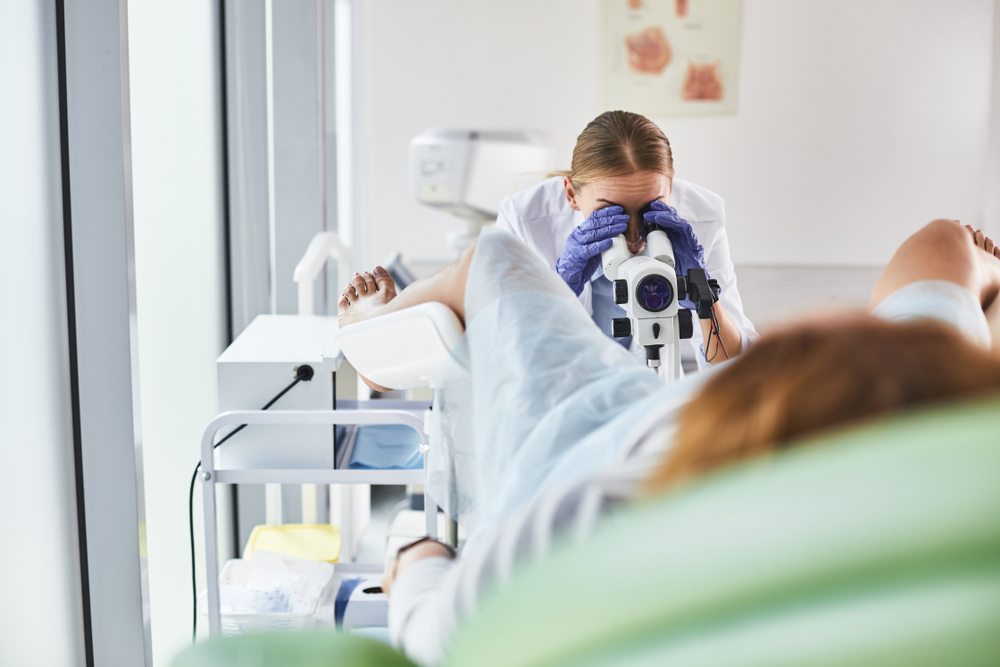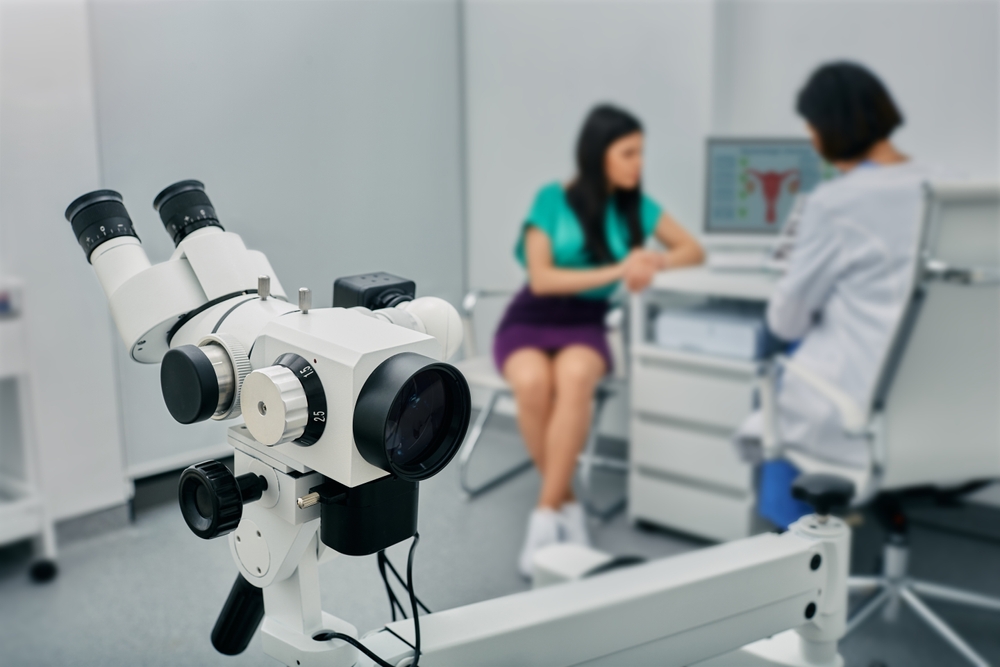What Is a Colposcopy?
A colposcopy is an examination of the cervix that helps detect abnormal cervical cells with the use of a microscope. During the examination, the medical professional checks the vaginal walls, vulva, and cervix for any signals of cancerous and precancerous cells and tissue.
This procedure is recommended by doctors when the results of the pap smear are abnormal and additional examination needs to be done. A colposcopy helps doctors give a more accurate diagnosis of the condition, so many practitioners advise and perform this procedure after a negative pap smear as an additional precautionary measure.
A negative pap smear can be scary and uncomfortable, so additional tests are something that helps the patients calm down and feel better. A colposcopy in Pembroke Pines is a well-known procedure, and there is a variety of different clinics which offer this service. ACE OBGYN LLC should definitely be on your list of potential options because of its expert team of doctors, the team’s immense experience, and its welcoming environment.
When it comes to the question of what is a colposcopy, it is crucial to understand that this procedure is recommended after a negative pap smear and that it is used for additional diagnosis. You need to discuss your options with the chosen medical professional before scheduling this exam.
Why Do I Need a Colposcopy and How Is It Performed?

In case you are wondering why I need a colposcopy, here are some reasons which might answer your question:
- It helps the doctor check the walls of the vagina and the cervix for abnormal tissue more thoroughly.
- You can find out whether you have precancerous or cancerous cells in the body.
- You can be tested for genital warts and polyps (which are noncancerous).
- When you have a positive test for HPV, this procedure helps the medical professional get more information about the condition.
- Evaluation of symptoms such as abnormal bleeding and itching in the vulvar area.
It is essential to state that you do not have to worry if your doctor advises you to get a colposcopy. This is a precautionary measure, and even if you do have precancerous cells, they will be detected on time before they become cancerous.
Regarding the performance of the procedure, here is some information that will be useful to you if you prepare for it.
Colposcopy is performed by gynecologist or a gyn-oncologist. Still, generally, the more experienced the person who is performing a colposcopy is, the better the chances of catching the precancerous cells are. Biopsies are done when the doctor detects abnormalities while performing the colposcopy and wants to send a tissue sample for analysis.
The preparation for this procedure is simple, and it consists of the following steps:
- Although you can have a colposcopy while pregnant, it is advised to share this information with your doctor to avoid risks of bleeding and additional complications.
- Make sure you are not on your period because even though you can theoretically have this examination during that time, the blood can interfere with the accuracy of the results.
- Avoid having sexual relations or any other type of vaginal penetration at least two days before the procedure. Avoid using sex toys, tampons, medication that is inserted vaginally, etc.
- If your pain tolerance is low, take some pain relievers before the procedure. This will help you feel more relaxed and comfortable during the exam.
Generally, a colposcopy is not a lot different than a regular pap test. There is no usage of anesthesia for the procedure, and you take painkillers at your discretion. Below you can find the process explained in steps:
- The exam is done at a doctor’s office or a clinic.
- The patient lays down on the examination table and puts the feet in the stirrups.
- An instrument called a speculum is inserted into the vagina to widen it and separate the walls so the cervix becomes more visible.
- The cervix is cleaned with a diluted vinegar solution so that the doctor can see abnormal cells more clearly. Sometimes there is a burning sensation caused by the solution.
- The doctor uses a colposcope (an instrument that has a bright light and lenses) to have a close look at the vagina and the cervix.
- The colposcope is not inserted into the vagina, nor does it touch the patient at any point during the appointment.
- If the doctor detects any abnormalities, the doctor will take a tissue sample and send it for further analysis to pathology. You might feel some pressure or pain during the removal of the sample.
The difference between a pap smear and a colposcopy is that during a pap smear, the tissue from the entire cervix is sent for analysis. In contrast, during a colposcopy, the doctor can choose a particular area of the cervix they want to include in the analysis and a biopsy of the cervix is performed.
How Long Does a Colposcopy Take?
If you are wondering how long a colposcopy takes, do not worry, it does not take long. As it is pretty similar to a pap smear, it does not take longer than 20 minutes. Another positive side of this exam is that you are free to go home right after the procedure.
When it comes to pain, as mentioned earlier, this procedure is generally painless. Some women feel pressure when the doctor inserts a speculum in the vagina. Also, the burning sensation from the vinegar solution can occur when it is put on the cervix. A biopsy might also cause some pain, but just for a short moment when the sample of the tissue is taken.
How Long After a Colposcopy Can You Have Intercourse?
If you recently had this procedure and you want to know how long after a colposcopy can you have intercourse, we have good news. If you did not have a biopsy, and the doctor did not find any abnormalities during the examination, you can have vaginal sex whenever you decide. In case a biopsy was performed, you should wait at least seven days before engaging in sexual relations. You have to let your cervix heal before having intercourse again.
The Aftermath

Generally, right after a colposcopy, you should be able to continue with your everyday activities as usual. If the doctor did not perform a biopsy, then you might just experience some light spotting for a day or two.
If a biopsy was performed, you could experience light vaginal bleeding, little vaginal pain, and discharge from the vagina, which would last a few days. Pads are an excellent solution to handle vaginal discharge and bleeding. Do not insert anything into the vagina, and wait for a while so your cervix can heal. For any additional complications, make sure to contact your chosen medical professional.
When it comes to the results, they should arrive within a few days, and if they show specific abnormalities, your doctor will create a treatment plan for you. When the results indicate just mild dysplasia, then the doctor would most probably just recommend a repeated pap test. If the results are more severe, you might be advised to try a cone biopsy, cryotherapy, laser surgery, electrosurgical incision procedure, or surgery to remove a portion of the cervix or the whole cervix and uterus in case of invasive cervical cancer.
Schedule an Appointment!
Our experienced staff is there for you, so call us and schedule an appointment!

